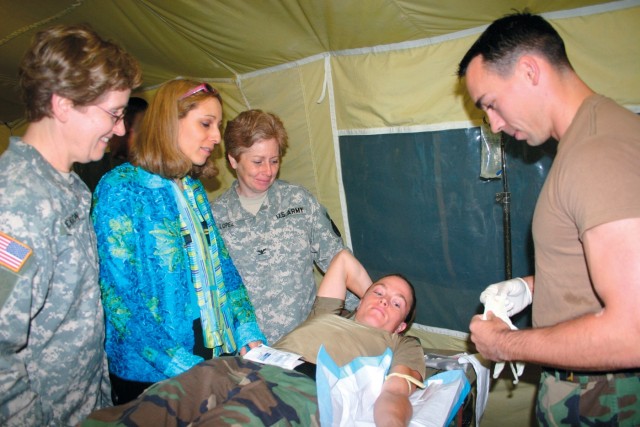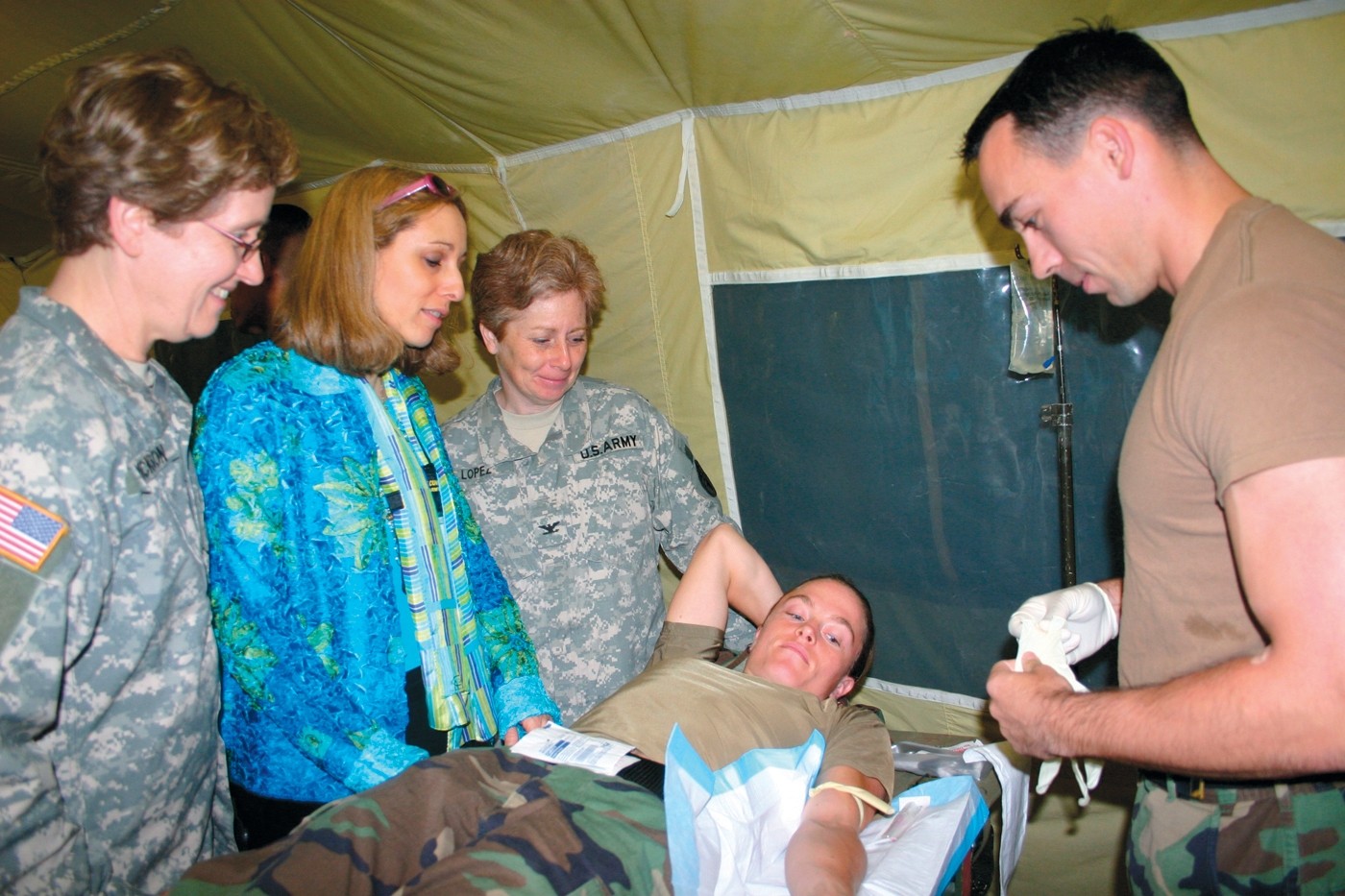
FORT SAM HOUSTON -- Twenty-seven military and civilian educators and organization presidents from throughout the nation converged at Fort Sam Houston April 15 through 18 for the first-ever Army Medical Specialist Corps Educators Tour.
The visitors, from top universities and national professional organizations, got a first-hand look at how the Army trains its occupational therapists, physical therapists, dietitians and physician assistants - the four specialties that comprise the Army Medical Specialist Corps.
"I think the visitors will walk away with a tremendously positive message," said Col. George Dilly, the Specialist Corps specific branch proponent officer. "Our goal is to show the opportunity, flexibility and diversity within the Army Medical Specialist Corps."
The Specialist Corps, along with U.S. Army Recruiting Command, organized the tour to enhance recruiting efforts and familiarize key civilian leaders with the Army and its incentives and benefits.
"I had a general idea about our military professionals, but this tour makes it real. I'll take back this information and look at ways to educate our members about the military and the career opportunities," said Ronald Moen, chief executive officer for the American Dietetic Association in Chicago.
During the tour, visitors had the chance to learn about training in all of its dimensions, from classroom training at the Army Medical Department Center and School to practical application at Brooke Army Medical Center and the Center for the Intrepid physical rehabilitation facility. At nearby Camp Bullis, the VIPs were familiarized with "roughing it" Army-style as they toured the tents where medical specialty students train for deployment.
"This tour has been a phenomenal illumination of the Army. There's a huge opportunity for us to learn, have an exchange of ideas between our students and the Army's," said Linda Lafferty, president of the National Society of Healthcare Food Service Management, and director of dietetic internship at Rush University Medical Center in Chicago.
"The Army training for war would be very applicable for civilian disasters, such as an Avian flu outbreak," said Mary Angela Miller, president-elect for the NSHFSM and administrative director of hospital administration at The Ohio State University Medical Center in Columbus. "We come from very progressive medical centers, but what we're seeing here is very impressive. If I had a military applicant, I would give them greater consideration now, particularly when it comes to their leadership experience."
The focus for some visitors was military familiarization, but a few attended the tour with a different goal in mind. Sandy Harding, director of Federal Affairs for the American Academy of Physician Assistants, was on a fact-finding mission to help fuel her work to increase benefits for PAs.
"If the federal government wants to attract PAs, it has to be competitive," said Harding, who is working with the Office of Personnel Management to update classifications and qualifications for the career field. "It's helpful to see PAs in action so I can better understand recruitment issues."
"The Army has a shortfall in acquisition of PAs," said Gregor Bennett, president elect of the American Association of Physician Assistants, Grand Rapids, Mich. "I mentor a lot of prospective PA students, and would urge them to consider a career in uniform. The Army has a lot to offer students."
The tour not only brought the Army to life for the civilians, it also dispelled some myths about military health care for attendees who, like the rest of the nation, have been bombarded with negative stories from the media.
"I was astonished by CFI and the BAMC facilities," said Joseph Tommasino, physician assistant program director at Touro College, Bayshore, N.Y., and an Army Reserve major for the "Famous Fighting 69th" in Manhattan. "After all of the negative press, all I can say is, 'What's everyone talking about''"
"I'm seeing amazing state-of-the-art care," said Barbara Kornblau, a professor at Nova Southeastern University in Fort Lauderdale, Fla., and former president of the American Occupational Therapy Association. "Every Soldier deserves the quality of care given in the Intrepid. I'm going to go back and tell my students, 'if you want to work in state-of-the-art facilities and serve your country, this is the place to be."
A few of the visitors were so impressed; they were tempted to join themselves.
"I'm so impressed at how polite and respectful people in the military are," said Liz Cara, occupational therapy professor at San Jose State University, Calif.
"If I was 30 years younger, I'd be enlisting," Lafferty said.

Social Sharing